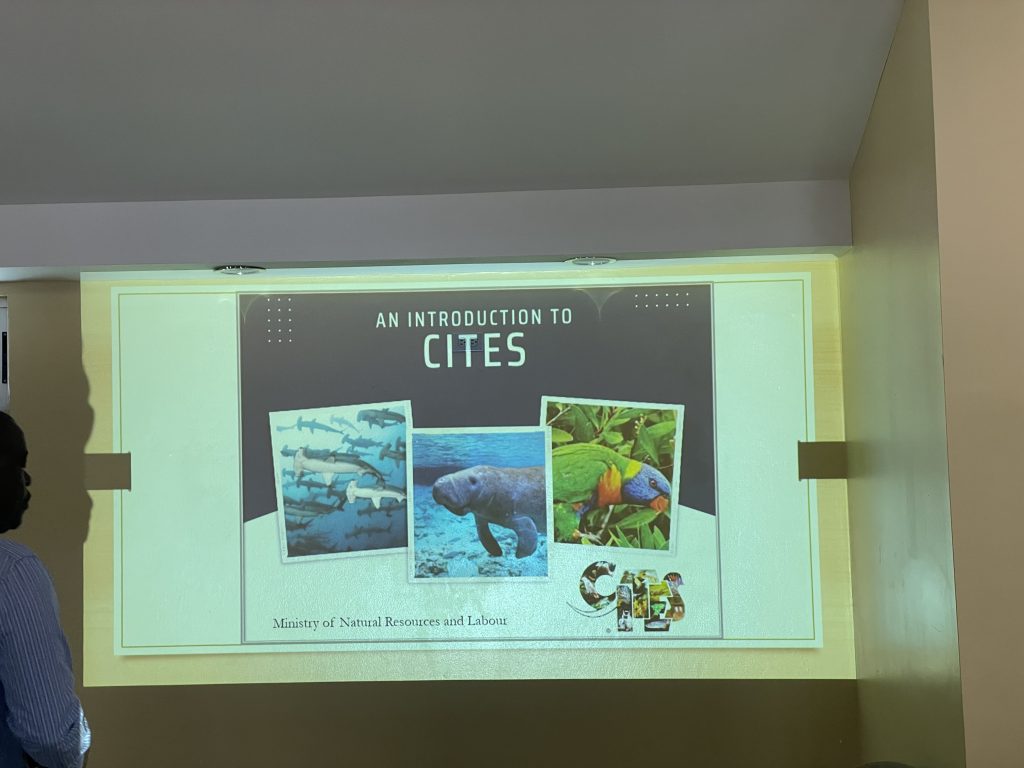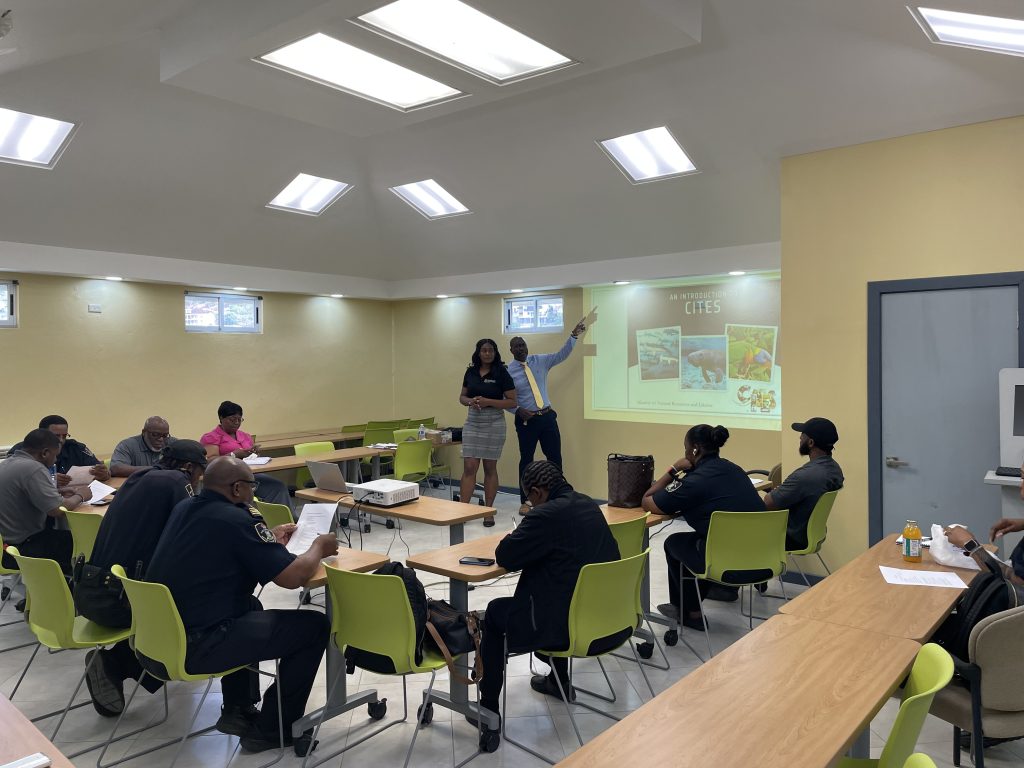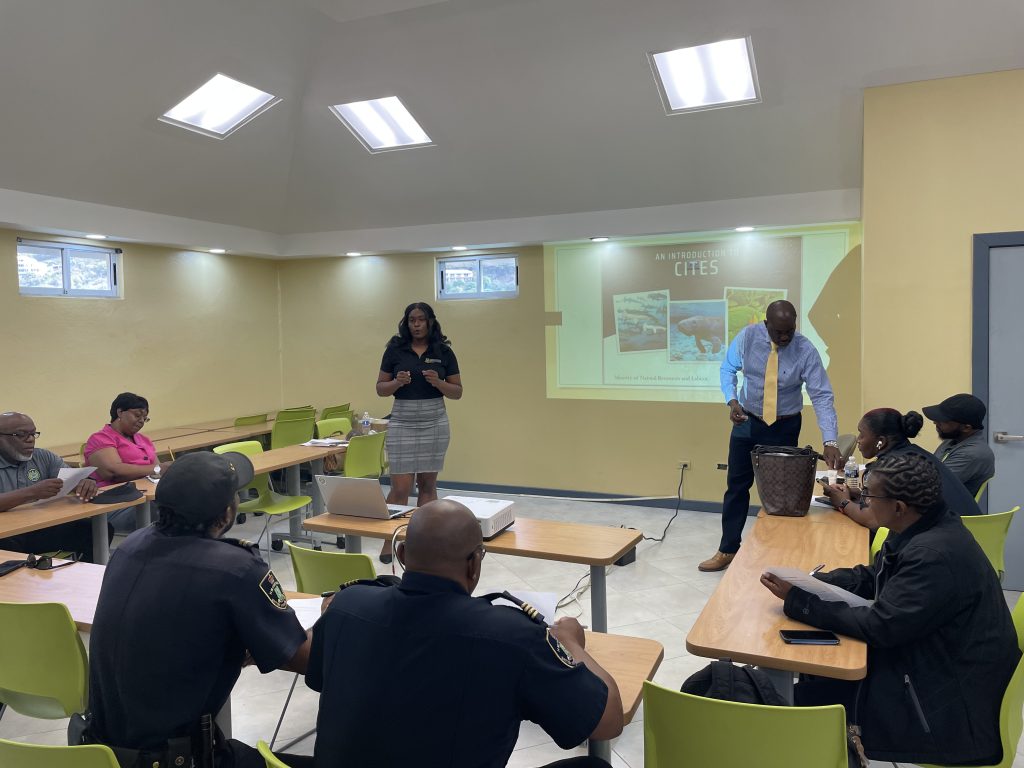Representatives from His Majesty’s Customs were engaged in a two- day workshop on the Convention on International Trade in Endangered Species of Wild Fauna and Flora (CITES).
The participants were trained in areas covering legislation, science and enforcement aspects of the convention.
Environmental Officer Argel Horton said CITES is an international agreement between governments with the aim of ensuring that international trade in specimens of wild animals and plants does not threaten the survival of the species.
Ms. Horton added, “The importance of the CITES permitting system is to ensure that international trade of listed species in the convention are sustainable, the process is legal and all specimens can be traced.”
Ms. Horton reminded the public that CITES permits are required to enter into other countries with animals, plants or their by-products that are listed under CITES. Products and pets that fall under this list can be confiscated; fines can be issued and/or even arrest.

Marine Biologist Mr. Mervin Hastings said the Virgin Islands has been a party of the CITES international agreement since 1976 and has upheld the agreements with the 1987 Endangered Animals and Plants Ordinance.
Mr. Hastings said, “Now, we have updated this legislation and we now have the 2020 Virgin Islands Trade in Endangered Species (CITES) Act. The Environment Unit continues to do its part as the CITES authority within the Territory to ensure that agencies such as His Majesty’s Customs are well versed in the subject.
“We encourage all persons that are considering leaving or entering the Territory to familiarise themselves with the CITES website to verify if the item they are travelling with is or is not considered an endangered species,” Mr. Hastings said, adding, “If they are part of the endangered species list, persons are asked to apply to the ministry for a CITES permit.”
Participants were also engaged in interactive learning sessions during the workshop, and also enhanced their knowledge about the purpose of the convention, its rules, and the legislations that aim to protect endangered species as well as the enforcement aspects concerning the wildlife trade which is governed according to the convention.
Discussions also focused on identifying species, how they are listed in the CITES appendices, rules around the issuances of permits, species that regularly enter and leave the VI that require CITES permits include by are not limited to; Conch Meat, Conch Shells, Conch Products (jewellery, pearls etc.), Corals and Coral Products, Pet Snakes, Pet Parrots and Wild Orchids. The CITES website is https://cites.org/eng.

Persons wishing to apply for a CITES permit may contact the Environment Unit via telephone at 1 (284) 468-2147, by email at nrl@gov.vg, or by visiting the unit on the Third (3rd) floor of the Pusser’s Warehouse in Lower Estate (Top floor of the New One Mart Lower Estate Store).
The Environment and Climate Change Unit is the local authority on CITES matters and administration, it continues to effectively administer the natural resources of the Territory in a manner that ensures long-term sustainability.


